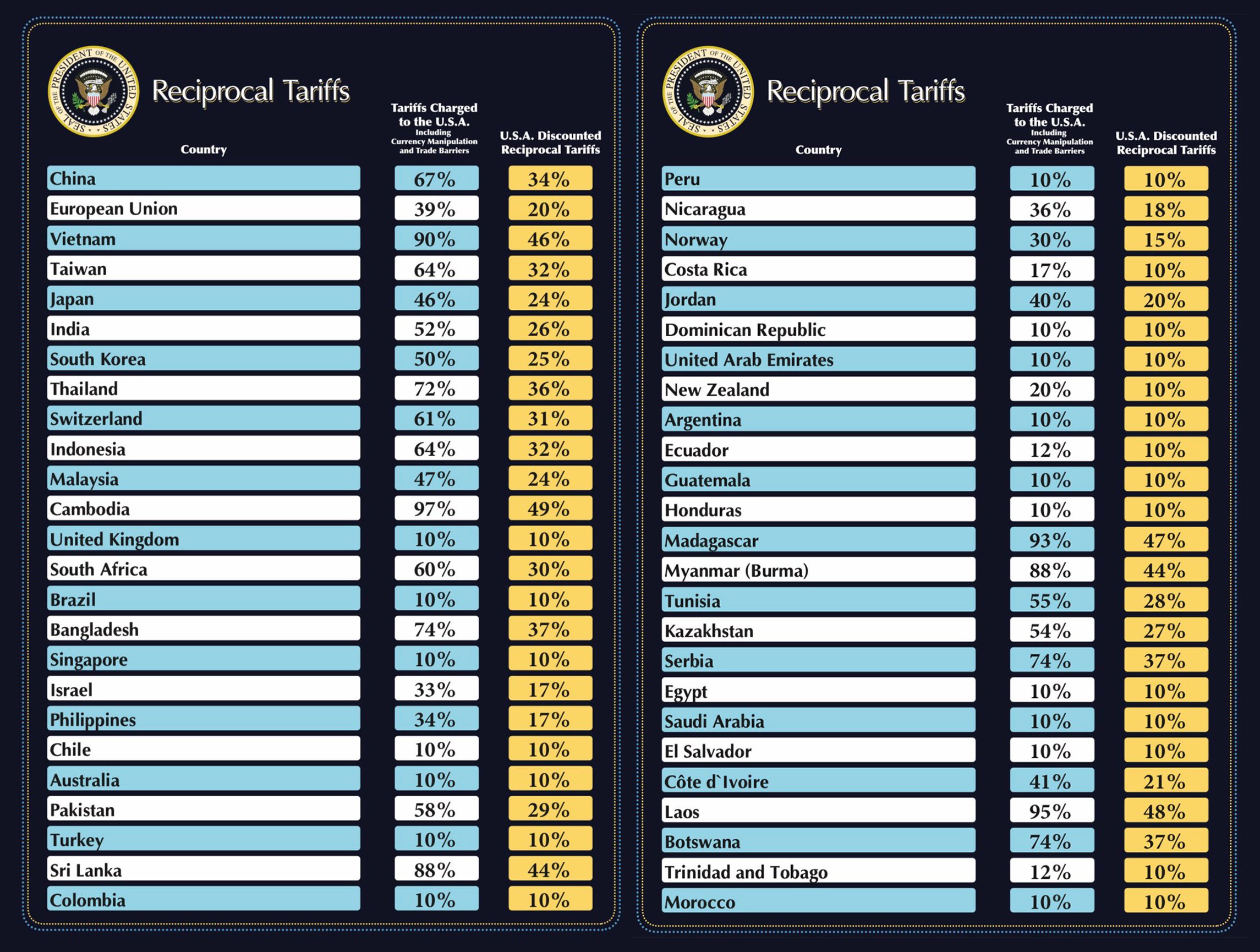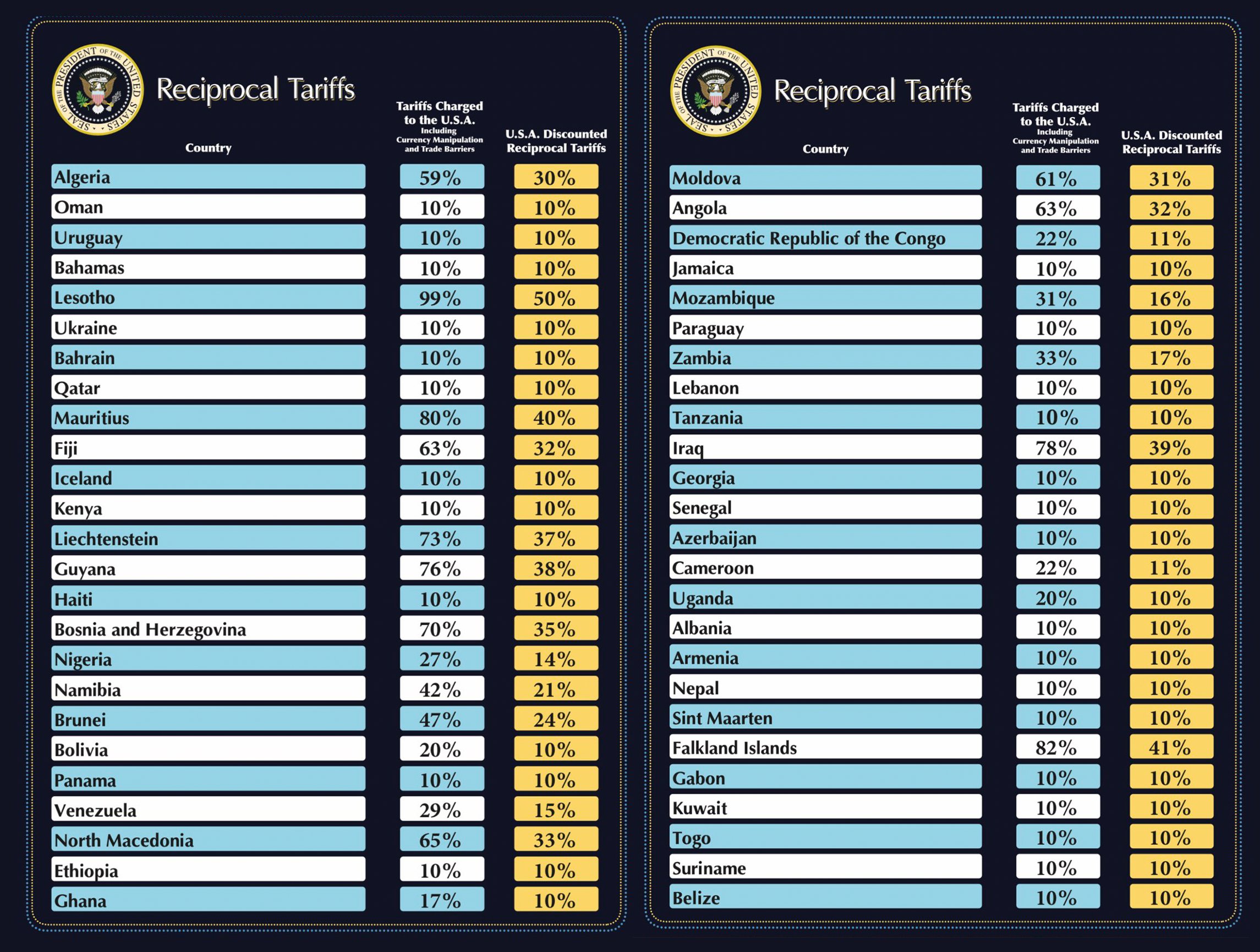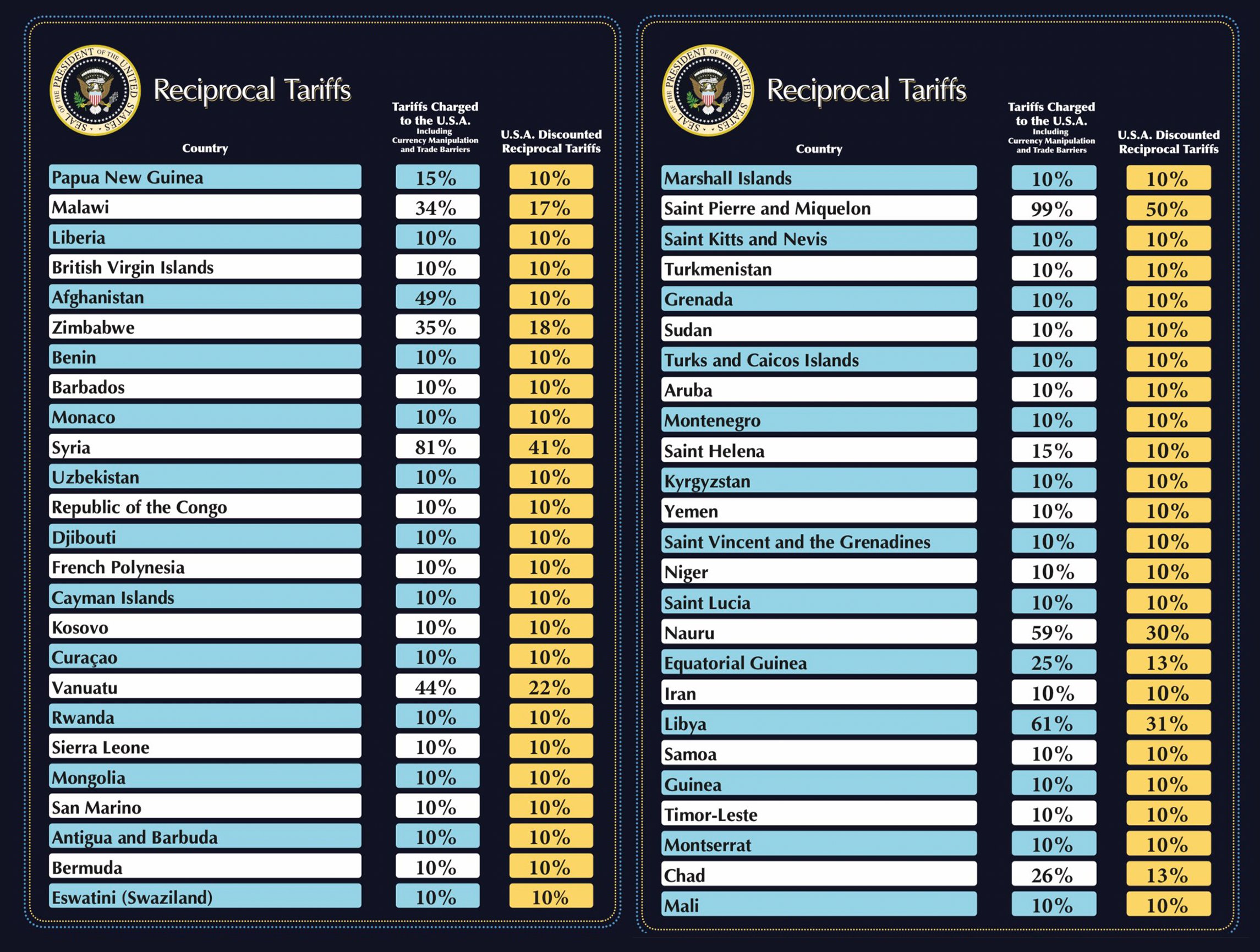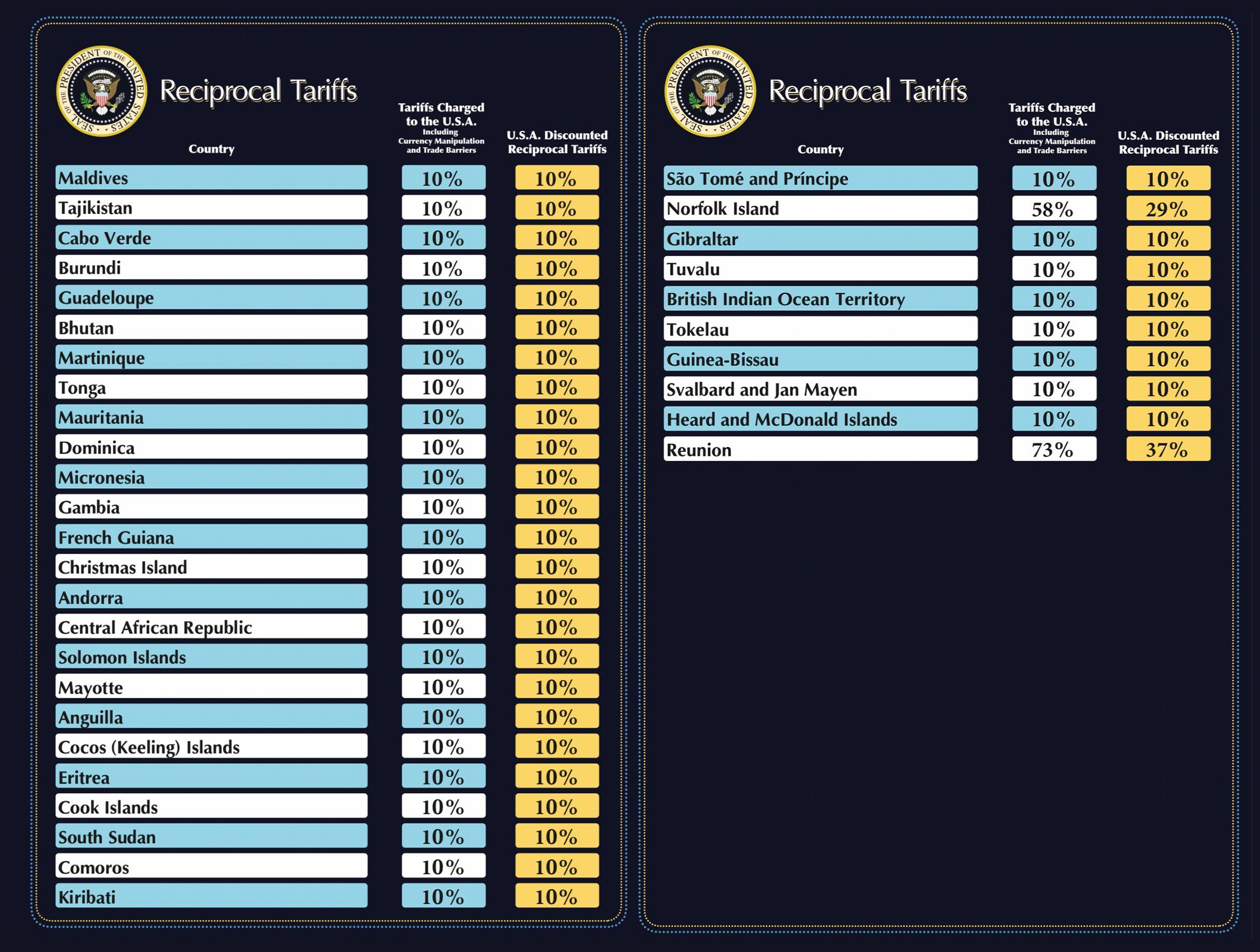U.S. President Donald Trump’s recent policy decisions, including sweeping new tariffs and the cancellation of key contracts, are poised to inflict significant damage on the Kenyan economy.
Trump’s tariff policy signed at the White House on Wednesday, April 2, 2025, sets a 10% baseline tariff on all imports, with steeper rates for specific countries.
Among the major world economies hit hard by the new U.S tariffs include; China (34%) , European Union (20%), Vietnam (46%), Taiwan (64%), Japan (24%), India (26%) and South Korea (25%).
U.S has imposed a 10% tariff on all imports from Kenya.
The moves, framed as efforts to eliminate “wasteful spending” and promote fair trade, are raising alarm in Nairobi and among international trade analysts.




Here are five reasons why these policies are expected to devastate Kenya:
1. Contract cancellation
The cancellation of a $3.4 million (Ksh438.6 million) contract for aviation advisors in Kenya, announced by the Department of Government Efficiency (DOGE) led by Elon Musk, represents a direct blow to Kenya’s aviation sector.
This contract, part of a broader initiative to enhance aviation operations, safety, and management in African nations, provided crucial technical support.
Its termination will likely hinder Kenya’s efforts to improve its aviation infrastructure and safety standards, impacting both domestic and international travel.
2. Reduced Income for Kenyan Farmers and Workers
A significant portion of Kenya’s exports to the U.S. are agricultural products (tea, coffee, flowers) and textiles.
These sectors employ a large number of ordinary Kenyans, particularly in rural areas.
The 10% tariff will make these Kenyan goods more expensive in the U.S. market, potentially reducing demand.
This could lead to lower prices paid to Kenyan farmers and reduced wages for textile workers, directly impacting their livelihoods.
3. Potential Job Losses in Export-Oriented Industries
If Kenyan exports become less competitive in the U.S., businesses involved in these industries may be forced to downsize or close.
This will result in job losses, adding to unemployment rates and creating financial strain for affected families.
4. Decreased Economic Activity in Rural Areas
Many rural Kenyan communities rely heavily on agricultural exports.
Reduced income and job losses in these sectors will have a cascading effect, impacting local businesses and overall economic activity in rural areas.
5. Impact on Related Industries
The export sector supports a network of related industries, including transportation, logistics, and packaging.
A decline in exports will negatively impact these industries, leading to further job losses and economic hardship.
6. Wider Economic Instability
A significant decline in export revenue can destabilize Kenya’s economy, leading to currency devaluation and increased inflation.
This will drive up the cost of living for ordinary citizens, making it harder to afford essential goods and services.
In essence, while the tariffs are directly applied to exported goods, the resulting economic downturn will affect the daily lives of ordinary Kenyans through reduced income, job losses, and increased living costs.

